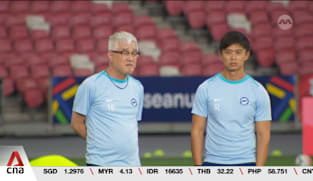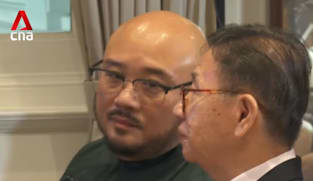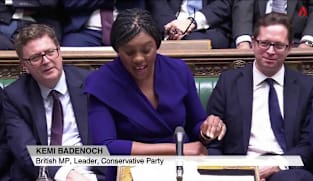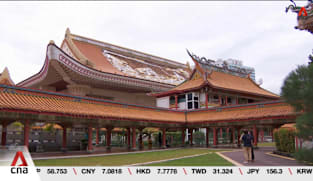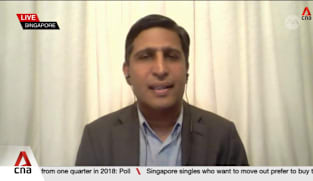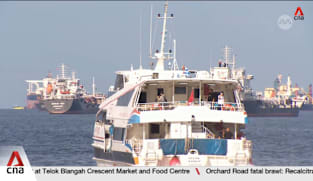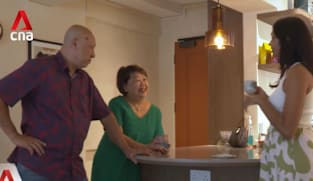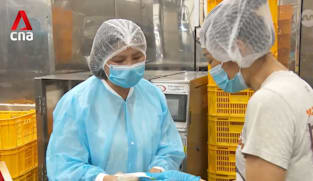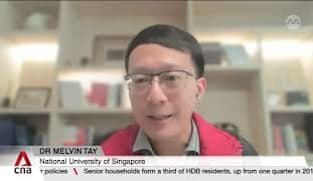Committee of Supply 2024 debate, Day 5: Muhammad Faishal Ibrahim on building an inclusive home for all Singaporeans
The Government is committed to building an inclusive home for all Singaporeans, said Minister of State for National Development Muhammad Faishal Ibrahim. It will continue to respond to the diverse and evolving needs of the population, integrate housing with social support to empower and uplift lower-income households and enable seniors to age gracefully and safely, he said. Outlining the programmes and initiatives in Parliament on Tuesday (Mar 5), Dr Faishal focused on two key areas - uplifting lower-income households and preserving social mobility, and ensuring that Singapore remains a safe and comfortable home for its ageing population. For lower-income households with no other housing options, public rental housing is a key social safety net, he said. The Government has been pairing rental housing with social support, with all families with children entering public rental housing through the ComLink Rental Scheme. Around 700 families are in this scheme. Rental households are also supported in their transition towards home ownership. For the past decade, about 8,300 public rental households have progressed to home ownership. In 2023 alone, close to 950 households transitioned to home ownership, the highest in the last five years. Turning to support for singles in public rental housing, Dr Faishal said the Government has been looking into new ways and typologies. One of them is the Single Room Shared Facilities (SRSF) model to give singles in public rental more privacy while making good use of limited space and preventing social isolation. The Housing and Development Board (HDB) will open applications for the SRSF pilot in the second quarter of this year. After that, it will house the first batch of successful applicants from around the third quarter of this year. Turning to efforts to make homes more senior-friendly, Dr Faishal highlighted the expansion of the wireless Alert Alarm System (AAS) to all seniors aged 60 and above living in public rental housing. About 800 seniors have received emergency medical assistance through the wireless AAS from end-2019 to mid-2023. It will be expanded from January 2025 and is expected to benefit around 26,800 more seniors living in around 170 rental blocks. More senior-friendly features will be offered under the Enhancement for Active Seniors (EASE) programme. These include lowered bathroom entrance kerbs and bidet sprays. Households may apply for the new improvement items under the EASE programme from April while those who have tapped on EASE in the past may apply again for the new items. Dr Faishal said the EASE programme is heavily subsidised by the Government. A Singaporean household living in a three-room flat only pays five per cent of the costs of the upgrades, with the rest covered by the Government. The new features will adopt this same subsidy structure, he said. A three-room flat owner tapping on the full EASE programme can expect to pay only around S$570, with the remaining cost of around S$10,000 borne by the Government.
The Government is committed to building an inclusive home for all Singaporeans, said Minister of State for National Development Muhammad Faishal Ibrahim. It will continue to respond to the diverse and evolving needs of the population, integrate housing with social support to empower and uplift lower-income households and enable seniors to age gracefully and safely, he said. Outlining the programmes and initiatives in Parliament on Tuesday (Mar 5), Dr Faishal focused on two key areas - uplifting lower-income households and preserving social mobility, and ensuring that Singapore remains a safe and comfortable home for its ageing population. For lower-income households with no other housing options, public rental housing is a key social safety net, he said. The Government has been pairing rental housing with social support, with all families with children entering public rental housing through the ComLink Rental Scheme. Around 700 families are in this scheme. Rental households are also supported in their transition towards home ownership. For the past decade, about 8,300 public rental households have progressed to home ownership. In 2023 alone, close to 950 households transitioned to home ownership, the highest in the last five years. Turning to support for singles in public rental housing, Dr Faishal said the Government has been looking into new ways and typologies. One of them is the Single Room Shared Facilities (SRSF) model to give singles in public rental more privacy while making good use of limited space and preventing social isolation. The Housing and Development Board (HDB) will open applications for the SRSF pilot in the second quarter of this year. After that, it will house the first batch of successful applicants from around the third quarter of this year. Turning to efforts to make homes more senior-friendly, Dr Faishal highlighted the expansion of the wireless Alert Alarm System (AAS) to all seniors aged 60 and above living in public rental housing. About 800 seniors have received emergency medical assistance through the wireless AAS from end-2019 to mid-2023. It will be expanded from January 2025 and is expected to benefit around 26,800 more seniors living in around 170 rental blocks. More senior-friendly features will be offered under the Enhancement for Active Seniors (EASE) programme. These include lowered bathroom entrance kerbs and bidet sprays. Households may apply for the new improvement items under the EASE programme from April while those who have tapped on EASE in the past may apply again for the new items. Dr Faishal said the EASE programme is heavily subsidised by the Government. A Singaporean household living in a three-room flat only pays five per cent of the costs of the upgrades, with the rest covered by the Government. The new features will adopt this same subsidy structure, he said. A three-room flat owner tapping on the full EASE programme can expect to pay only around S$570, with the remaining cost of around S$10,000 borne by the Government.








